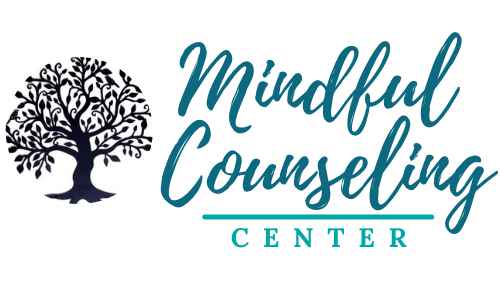Got the Job Search Blues?

This blog is featured in the Mindful Life’s Young Adult Series (the Mindful Life is the blog of the Mindful Counseling Center), which is written by young adult bloggers for young adults. This particular blog focuses on the job search process and the stress that can accompany it for new college graduates.
For new college graduates, a big part of feeling as if you have transitioned into the “real” world is finding your first “adult” job. A lot of us have already had part time jobs, like babysitting/childcare, working in the food industry or retail, summer camps, lifeguarding, landscaping, etc. While these jobs are oftentimes necessary experiences to build skills and earn a few bucks (and can be fun to boot), finding a job in your field of study is an important career step that will allow you to reach for greater professional opportunities in the future. It is completely normal to feel anxious and even scared about this whole process, as you probably have never been involved in a job search of this level before.
While it can be exciting to imagine yourself in different jobs and interacting with potential employers, job search stress can also trigger feelings like:
- Fatigue
- Difficulty concentrating
- Trouble sleeping
- Increased irritability
- Disinterest in usual hobbies
- Feelings of helplessness and/or worthlessness
- Feeling unable to organize yourself (your space, your time, your job search, etc.)
- Procrastination
- Feeling withdrawn
Job search stress is not unique to young college graduates; anyone who is looking to transition into another job can experience it. Leaving behind what you know and jumping into something new happens to people all the time. It can feel challenging, uncomfortable and nerve-racking all at the same time.
Here are a few things to consider during your job search that might help ease your mind and reduce your stress level:
Put Effort into Developing Your Resume
Making sure that you have an effective resume is oftentimes the first step in a job search. Having all of the key components of a resume is a part of what companies are going to be looking at when hiring employees. Key resume components include contact information, skills, career summary, education, and work experience. In my personal experience, I had never created a professional resume before taking a professional writing class in college. Reaching out to past college professors in your field could be really helpful when developing a resume, to make sure that you have specific skills sought after by employers in your field.
Also, be sure to review your resume for spelling and grammar; maybe ask a few friends or family members for help. It doesn’t hurt if your resume is nicely laid out too. However, I would caution you not to get too caught up in perfecting your layout. It can be time consuming and not necessarily produce the desired effect (landing you job interviews).
Show Dedication
While you may be applying to many different jobs, it will be helpful to write each cover letter and resume to align with the specific job that you are applying for. While it is likely that most of the jobs are similar enough that you will only have to tweak your cover letters a little, customizing each letter and even the resume you sent along with it allows you to demonstrate that you have the qualifications the employer wants.
Anxiety may arise during the sometimes long wait to hear back from employers. Since these jobs are probably getting a plethora of applications, it can be stressful to wait for the results of your application (it might feel like applying to college all over again). A way to get ahead in the application process can be to contact the company directly if you are applying on a job website. This way they will be able to directly contact you and notice your eagerness and dedication.
Practice for Interviews
It is always a great idea to practice for any possible interviews ahead of time. Looking at possible interview questions online can be helpful for practice and preparation. It is also a good idea to have someone to practice with in a mock interview, so that you can get past your initial nerves.
In addition, planning out your outfit and route to the interview can save you from a lot of stressful thoughts on the day of the interview.
Focus on What You Can Control
When looking for a job, it is better to focus on what you can control, rather than what you can’t. You won’t be able to control when you will hear back from possible employers or what the outcomes will be, so there is no use in spending too much of your time dwelling over these things.
What you can control is making sure that you put the best version of yourself into the applications, and that you are achieving your goals along the way. It can be useful to develop a plan in advance that allows you to set goals to make the job search seem more manageable. Jobs usually don’t fall into your lap; most of the time, you have to put a lot of work into the application process. Setting goals and realistic expectations will help you further your journey into finding the best suited job for you. It also gives you the opportunity to celebrate any accomplishment in achieving your goals, big or small.
 Tap into Your Support System
Tap into Your Support System
Don’t be afraid to lean on your friends and family in a time like this. They have probably gone through the same process that you are going through, so it is a good idea to ask them for advice on what they thought helped them during their job search process.
There are also professional career coaches that can help guide you through this process, so it doesn’t feel like you are tackling the search all by yourself. One possible free resource is your college’s career services office; check out if it offers alumni job search assistance.
Another resource are previous professors who may have contacts in the job field that you are trying to find a job in. Contact them to see if they might be able to introduce you to possible future employers.
Take Mental Health Moments and Days
To deal with the anxiety that can accompany a job search, it is important that you are able to take time to yourself away from the job search. Spending time with friends and family is always a good healthy distraction, or even just participating in activities that calm you down. Whenever I find myself in a stressful deep dive of my future plans, I find it useful to temporarily step away from what is causing the stress. Most of the time, I do this by turning on a show or listening to music, so that I can focus on something completely different. It can also be helpful to practice breathing exercises, meditation, or mindfulness practices often, to give your mind a break. This can be as simple as following a meditation YouTube video or going on a walk in nature.
Know that Help is Available
Sometimes the job search stress raises mental health concerns. You might feel anxious, depressed, critical of yourself, lonely and/or lose hope if you are not having luck securing a job or the search goes longer than you had expected. These feelings are normal but can negatively affect your daily functioning. If this is the case for you, know that you don’t have to deal with it alone. In addition to support from friends and family, you can reach out to a counselor for confidential support in getting through this process.
Best of luck to you during your job search! Take care of yourself. Contact the Mindful Counseling Center if you are interested in scheduling a counseling appointment.
Article by Emma Correia
